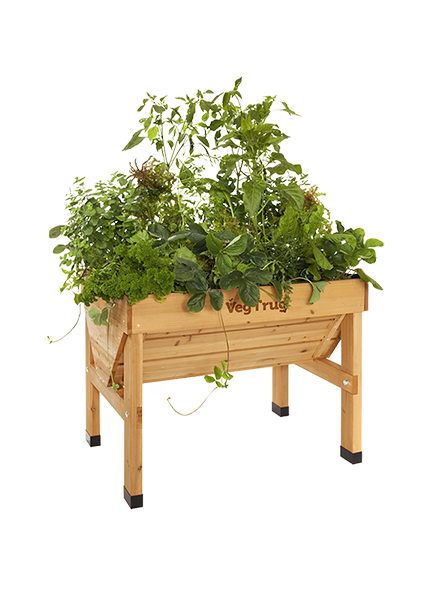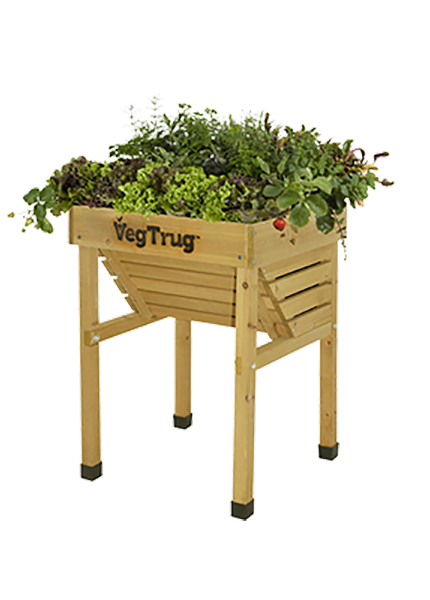Peas are best when they are eaten green, fresh and in season. They can be grown in the VegTrug a little way in from the back or front edge and will produce a wonderful crop.
In a container, the easiest peas to grow are the sugar snap types, snow peas or English peas.
Read more on how to grow peas in our guide below.
Peas thrive in an open, sunny place. Make sure there’s good drainage and add lime if the soil is acidic. They like it cool too, so sow when the temperature is lower, but don’t sow in wet or cold soil. Sowing peas is best either earlier or later in the season.
Plant them in a small trench, roughly 3cm deep, throughout the length of the VegTrug in spring.
For a very early crop and if you have a mild climate, favour round seeded peas, because the wrinkly pea-types can be harder to grow. Most of your crop should be sown from spring onwards however you can make sowings in the VegTrug right into the middle of summer. In this case, use 'early' varieties which will ripen quickly before any frosts come.
Dig a little trench about 8cm deep with a hoe and plant each pea 5 to 8cm apart. Cover and firm the soil
Try soaking the peas for a couple of days first to get them germinating so that they sprout earlier.
Once you know how to grow peas, they require very little care. When you see the first pea shoots give them a water. You shouldn’t need to water for another couple of weeks, but don’t let the soil dry out. Unless your peas are dwarf varieties, they’ll need support from canes or pea netting.
Once your peas have flowered, water regularly. Mulch can help keep the soil moisture rich.
Mice and pigeons will eat the seeds and voles are also hard to control. Placing tempting alternatives, such as peanut butter for mice and carrots or apples for voles, can be effective. Human trapping is another option, but other animals can get caught in traps.
Pigeons are notorious for attacking plants, sometimes leaving just the stems behind. The best solution is to grow the plants under nets or in a cage.
Pea moth is another pest you might discover when you’re first learning how to grow peas. The pea moth lays its eggs on peas that are flowering, and you’ll discover the caterpillars when you’re shelling your peas. Sowing outside the pea moth’s flying period often means your peas won’t be damaged.
Other problems include powdery mildew on the leaves and stems. Improving air circulation around the crop and keeping the soil moist can help.
Think about when and how to grow peas in terms of when you want to harvest them. Peas are best when they’re fresh and the best time to pick depends on the variety. For some, sugar snap varieties for example, it’s when the peas first form, for others it’s when the pods are seen bursting with fresh peas.
How to grow peas is part of the VegTrug Grower’s Guide.

